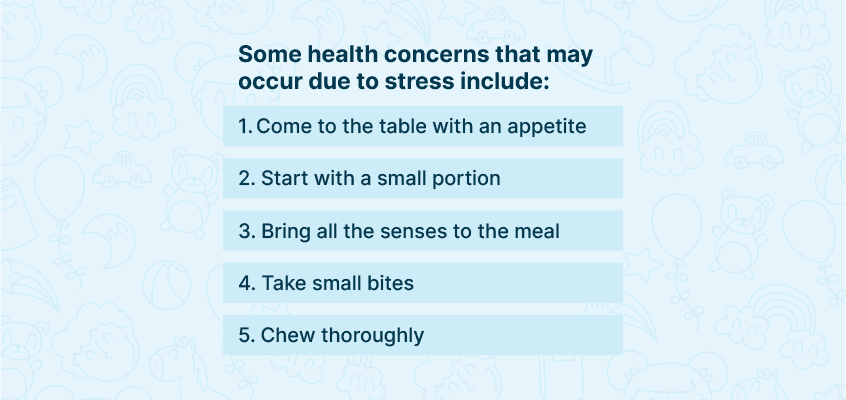Introduction
Mealtimes are typically hurried occurrences for many people due to their hectic lifestyles. That’s where mindful eating comes into play. It is a method for gaining control over eating habits and can aid in weight loss, discourage binge eating, and general well-being. We have derived the idea of mindful eating from the Buddhist notion of mindfulness, a type of meditation that teaches people to detect and manage their emotions and bodily sensations.
Our Wellness Programs
What Is Mindful Eating?
Maintaining an in-the-moment awareness of the food you eat is mindful eating. It entails paying attention to how food makes a person feel and their body’s signals regarding flavor, enjoyment, and fullness. Instead of judging their feelings, thoughts, or body sensations, mindful eating urges one to recognise and accept them.
Mindful eating isn’t about being flawless, always eating the proper foods, or never eating on the run again. It’s also not about establishing strict guidelines for how many calories one can consume or which items to include or exclude from their diet.
Mindful eating is about focusing all of their senses and being present in purchasing, preparing, serving, and consuming food.

Looking for services related to this subject? Get in touch with these experts today!!
Experts

Sapna Zarwal

India
Psychologist
Experience: 19 years

Munira Soni

India
Psychologist
Experience: 7 years

Manveen Kaur

India
Psychologist
Experience: 9 years

Bhavna Barmi

India
Psychologist
Experience: 11 years
How Can Mindful Eating Improve Our Lifestyle?
Mindful eating improves lifestyle in the following ways:
- Reduces stress and anxiety by allowing one to calm down and take a break from a busy day.
- As mindful eaters learn to slow down and appreciate meals and snacks more than before, they look for pleasure from the food they eat, which helps in following a balanced diet in the long run.
- Watching how each kind of food makes them feel after eating it may help them choose a better food item to relish. For example, fried or processed foods can bloat people faster, leading to nausea and sluggishness. But a plate of fruits, veggies, or grilled fish can fill the stomach without bloating. Besides, they will provide people with the required proteins and vitamins.
- Slowing food intake helps digestion and reduces various digestive disorders like IBS or irritable bowel syndrome, as reported by Cherpak in 2019.
- Learning about where food comes from and how it’s cooked helps build a relationship with food.
Benefits of Mindful Eating
There are lots of benefits to mindful eating.
- It can reduce both external and emotional eating.
- Both frequency and severity of binge eating, a type of eating disorder leading to obesity, can be reduced with mindful eating. Many obese women participated in a study that practiced mindful eating for six weeks. During that time, the frequency of binge eating reduced to 1-1.5 times every week from 4 times.
- Cortisol is a stress hormone responsible for increased stress in the body. According to Jennifer Daubenmier, a renowned San Francisco State University psychologist, the cortisol level and HDL ratio to triglycerides reduce due to mindful eating. Thus, mindful eating can help in controlling stress and anxiety.
- Mindful eating can be helpful for cancer patients, suggests a renowned dietician Stephanie Meyers, associated with Dana-Farber Cancer Institute. Cancer patients enjoy the texture and flavor of foods much better, which might aid the healing process.
Practising Mindful Eating
The human gut is home to billions of microorganisms, and these bacteria make up the ‘microbiome.’ According to a new study, there is an inextricable link between microbiota and mental health. A skewed connection with food might result from a microbiome imbalance. When one adds societal prejudices about body size and form, it’s easy to see why so many people have resorted to self-blame and self-shame when it comes to eating. What if the situation reverses? These are situations where mindful eating can help a person improve their lifestyle.
Participating in an activity with complete awareness can develop mindful eating. Eating with an entire focus is vital; instead, eating when busy or doing an activity diverts attention. To begin with, one should start practicing mindful eating for five minutes at a time and build up from there.
Tips for Practicing Mindful Eating
Although the ideal mindful-eating meal options are comparable to the Mediterranean diet, which emphasizes fruits, whole grains, vegetables, seeds, nuts, and vegetable oils, one can use the approach to enjoy a cheeseburger and fries. But for that, following the tips for practicing mindful eating is necessary:
- Begin with the shopping list: Consider the health benefits of each item one can add to their shopping list and stick to it to avoid impulsive purchases. Avoid the middle aisles laden with processed goods and the chips and sweets at the check-out desk. Ensure the majority of the cart is from the vegetable section.
- Come to the table with an appetite: This must be done, but not to the point that one is ravenous. If a person skips meals, they might be so eager to get something into their stomach that filling it takes precedence over enjoying it.
- Start with a small portion: Limiting the size of the plate to nine inches or less may be beneficial.
- Appreciate food: Before eating, take a moment to think about all that went into bringing the dinner to the table. Express gratitude for the chance to eat a wonderful meal and the company they share quietly.
- Bring all the senses to the meal: Whether cooking, serving, or eating, pay attention to color, texture, scent, and even the sounds of different meals. One must try to identify all of the elements in the feed as one chew it, especially the spices.
- Take small bites: Tasting everything when the mouth isn’t complete is simpler. Between bites, put the utensil down.
- Chew thoroughly: Chew thoroughly until the meal’s flavor is detected. One must chew the food 20-40 times before swallowing it. Also, one can experience the flavors of the food better, which makes you content.
- Eat slowly: Following the tips above, one must not gulp their meal. Before chatting with tablemates, try to devote five minutes to mindful eating.
Conclusion
The benefits of mindful eating are immeasurable. Although it appears to be simple, it requires practice. One can begin by implementing the method at their next meal or once a week, such as having a “mindful Monday.” They can also seek instruction from a dietician, therapist, or psychologist on United We Care. It is mental health wellness and therapy platform where people can obtain expert advice on dealing with their mental and emotional issues.
















